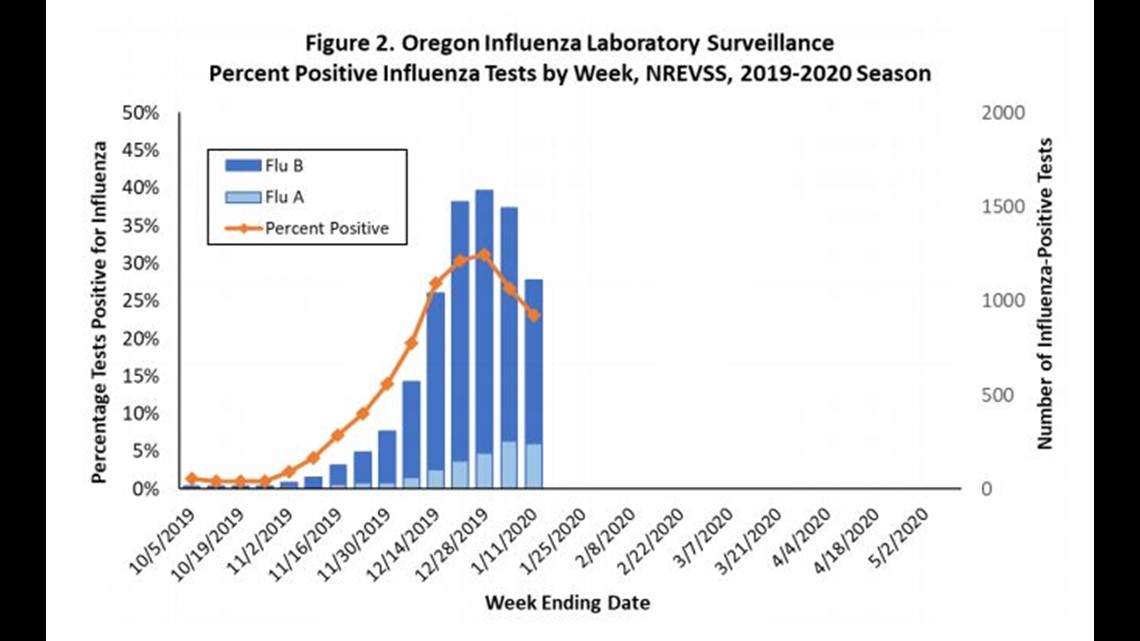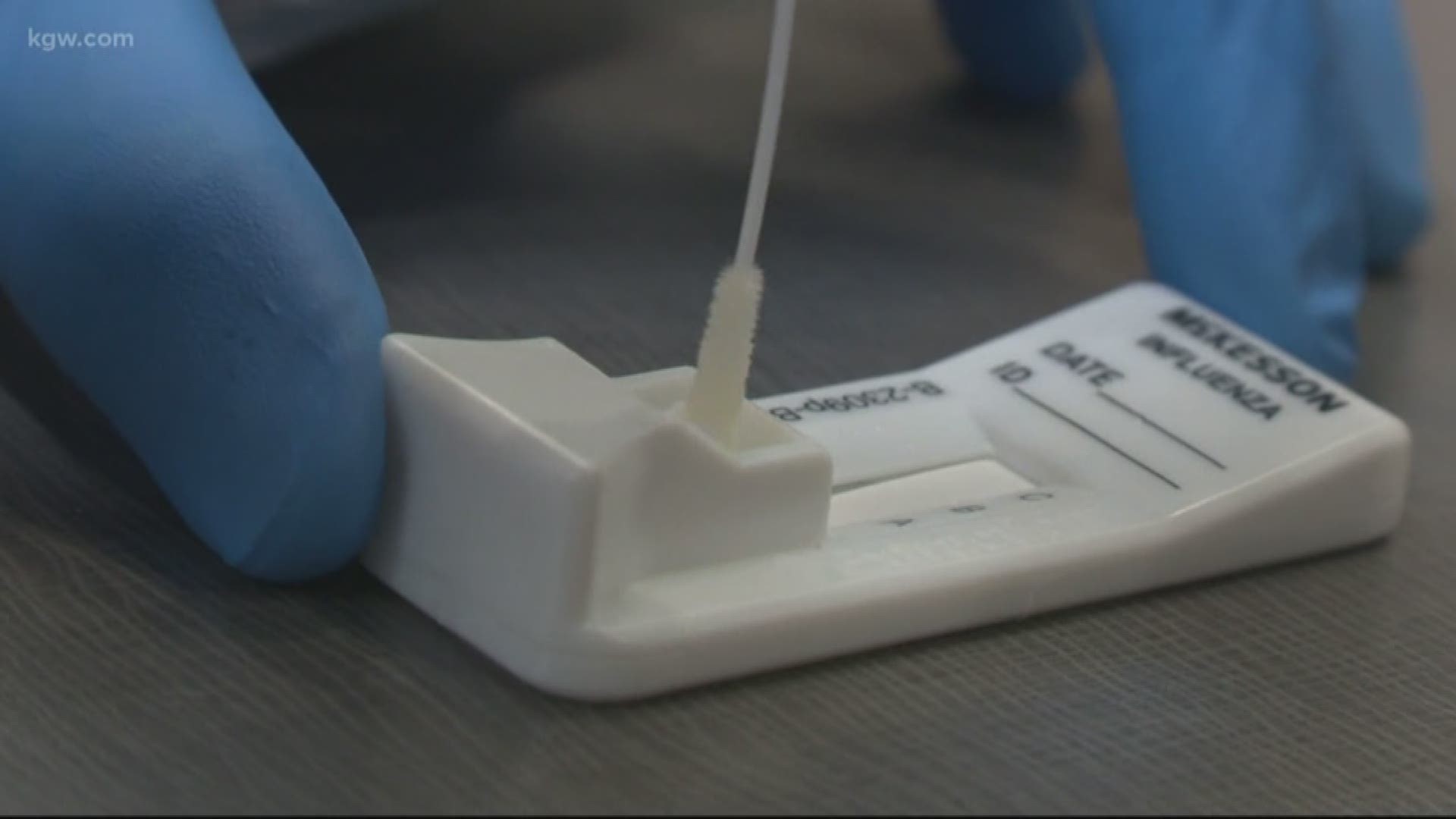PORTLAND, Ore. — Flu season seems exceptionally rough this year.
Maybe you've had it, maybe your kids or family members came down with it.
Oregon Health Authority (OHA) data from this flu season shows a lot of people were sick with the flu in December, but the season looks to be winding down now.
KGW dove into the numbers and took some of your common questions about the flu to an expert.
OHA puts out a weekly report on the flu and the most recent data set is from January 11.
In the graph below: the orange line represents the trend and percent and number of influenza-positive tests.


There was an uptick from November through December of 2019, peaking at the end of December.
Then the number took a nose dive, dropping off in the beginning of January.
Influenza B has been the predominant virus this season which is different than years past; traditionally, medical professionals say we see influenza A in the fall and influenza B in the spring.
Nationally, hospitalizations and deaths are not high at this point in the season, according to the CDC.
We took five of the most common questions about the flu and vaccine to an urgent care physician in Portland. We asked:
- How do you test for the flu?
- How do you treat the flu?
- How severe is this flu season?
- How effective is the vaccine?
- How long does the flu last and are there serious complications?
Dr. Kristen Flemmer, a physician at AFC Urgent Care says most of the time she can tell who has the flu, but the symptoms are similar to a cold because it’s a respiratory illness.
1. How do you test for the flu?
Dr. Flemmer uses a “rapid molecular assay” to test for the flu. It detects genetic material of the virus. She uses this stick to swab the inside of a patient’s nose and then puts it in a solution to test it for influenza a and vb. Results come back in about 15 minutes.
There are more accurate tests out there, done in special labs.
The CDC says if the test comes back positive it’s likely you have the flu. False negatives are more common than false positives.
“Tests are not always 100-percent so you have to use your clinical judgment along with the test,” Flemmer said.
2. If your test comes back positive, how do you treat it?
Dr. Flemmer says you treat influenza A and B with anti-viral medication for five days.
“The most common one is called Tamiflu and the sooner you get that going - it’s just a pill - the better. You want to treat within 72 hours of their symptoms," Flemmer added.
3. How does this year’s flu season compare to years past?
It came on strong and Flemmer's clinic has been slammed.
"It started really quickly. It was very very busy and within about two or three weeks it seemed to taper off quite a bit. Some of the days were pretty much everybody who was seen was the flu," she said. "It peaked very high so people were quite sick. It didn’t last as long as last yea. But I think I’ve seen sickest person I ever have this year."
4. Every year we ask: How effective is the vaccine?
Viruses in a flu shot are determined by the CDC. There are so many different types of viruses and they’re constantly changing.
Scientists estimate which types and strains of the flu will be most potent in the U.S. that year, in part based on what other countries see during their flu season.
Viruses are smart: different strains of the virus mutate over time and replace older strains of the virus, which is why doctors encourage you to get get your flu shot every year so your body builds immunity to the most recent strains.
Now the flu shot covers four strains: two influenza A strains - H1N1 and H3N2 - and two influenza B strains.
We don’t know how effective the vaccine is yet this season, but doctors like Flemmer say you should always get your flu shot.
“It’s still worth getting flu shot even if we’re not perfect in it. It still protects you still has some protection,” Dr. Flemmer added.
The vaccine is the best way to prevent the flu and if you do get sick doctors say it likely won’t be as severe or last as long.
5. How long does the flu last and are there serious complications?
The flu can last five days and, if a person has a cough, it could persist longer.
Many wind up in emergency departments and urgent cares. Worst case scenario: a person can die.
"It will make your vascular system very leaky so the fluid from your vascular system will leak out into your lungs and it causes your blood pressure to drop. So you might have the typical fever, chills, cold symptoms and then go to bed and not wake up because your blood pressure drops," Flemmer said.

